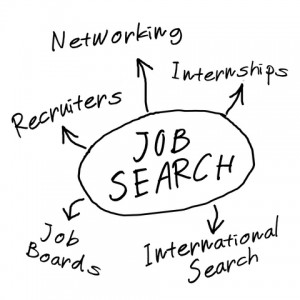This week, the UK government announced the third lockdown to combat covid-19.
This sensible approach to beating the pandemic, has left career professionals asking how the lockdown will affect the job market?
All job sectors ride the rollercoaster of economic growth and decline, which directly affects the number of employed professionals working, or required, in a particular industry. Covid-19 has had a large effect on people working in multiple industries, similar to the banking crisis of 2008.
Covid-19 has had a negative impact on low paid and low skilled positions, including the retail, hospitality travel and tourism sectors, to name a few. But not all low-paid jobs have seen a negative reaction to Covid; Deliveroo has seen a serge in customer orders increasing the demand for delivery drivers.
The pandemic, which has directly affected the job market (the number of vacancies) in 20/21, isn’t the only driver of change. Many factors affect the job market; globalisation, government policies, supply and demand, technology and demographics – people living longer.
Covid has also been a driver for positive change, increasing vacancies in a wide range of job sectors. Since March 2020, there has been a skills shortage in the UK, mainly in the professional level sector; managerial, professional and highly skilled roles – job positions that often require a university degree.
Job roles that have been hard to recruit for have included (source; prospects):
- Nurses
- Design Engineers
- Human Resource officers
- Vets
- Programmers
We know there are employers looking to recruit new employees during Covid-19, requiring hiring managers to plan how they will interview candidates during the lockdown.
Therefore, job seekers need to prepare for the 2021 Covid-19 job interview.
Covid related job interview questions
Job interview preparation, simply put is the ability to predict the job interview questions and prepare answers that will meet the job criteria, in a way that showcases an applicant’s competencies and unique selling point.
Interview questions, in the main, are embedded within a structured process with most questions relating to competencies;
‘Give me an example of completing (job criteria)’
‘How would you deal with a situation where you had to (job criteria)’
The pandemic has shown the need for personal strength as employees move to working, alone, from home. With this in mind interviewers are asking questions based on resilience;
‘How have you shown resileince during Covid?’
‘What has working during the pandemic taught you about yourself?’
‘Give an example of making an adaption during the covid-19 pandemic?’
Covid-19 related questions, as are all interview questions, are asked as the employers aim is to hire a career professional who has the skill, knowledge and experiences to complete the job duties within the workplace environment and company culture, which for many is now working from home or a blended work-office environment.
Preparing for a Covid virtual job interview
99% of job interviews will be virtual during the next 3 months.
Applicants, therefore, need to prepare for an online job interview.
Online job interviews come in two guises; a live video stream interview or a computerized AI interview.
Live video interviews, simply put, is a Q&A session with a ‘live’ interviewer. This is this general job interview that most job hunters are use to.
The above link (online job interview) will explain the technical preparations an interviewee needs to make for a video interview, including camera angles and framing.
In addition, many employers are opting to understand the industry knowledge level of an applicant through an interview presentation.
Delivering presentations as part of a recruitment process has been a long-established practice in certain job sectors, but recently we have seen an increase in employers from various industries adding a presentation as part of their interview selection process.
Presenting information is one to help an employer understand the level of industry knowledge an applicant has. In addition, many employers, due to job interviews being online, feel the opportunity to present, as well as answering interview questions, helps the candidate to relax during the abnormal online interview experience.
Robot Interviewers
A pre-programmed system that asks a job interview question before allowing the applicant to record a live answer (on average a 60 second – 2 minutes answer).
The video answers are then reviewed using a computer algorithm. This system is often used at the early stage of a recruitment process, decreasing the number of successful applicants who will then be required to attend a ‘human’ interview.
Creators of artificial intelligence interviewers will, most likely, have ambitions for the bots to be the go-to system for job interviews in the future, with cost-saving benefits to potential employers.
These high-tech systems can be used to scan applications, social media feeds and other data, to predict if an applicant is suitable for the job role or not, but also if they are likely to leave their current role for the new opportunity.
Equal opportunity leaders are worried about potential bias, inaccuracy, and lack of transparency when using an artificial intelligence recruitment system, believing that the system uses deceptive trade practices.
To pass a robotic job interview, applicants need to ensure interview answers reference the job criteria, giving examples of previous successes. Stating industry models and theories, also helps here, as stating the elements of a model ensures a high number of keywords have been used, and therefore pic up by the robot.
Interview anxiety
Research shows how a lack of job interview confidence has a direct impacts on the outcome of the job interview.
Anxious candidates will self-disclose weaknesses, have reduced eye-contact and increase the use of filler words. This combination of indicators reduce the level of knowledge and experience an applicant can express, successfully, to an employer.
If an interviewee fails to highlight how they meet the job criteria, they will score low on the interview scorecard, resulting in a job decline response.
A high number of people fear the job interview, in fact, being the center of attentions is one of the highest phobias when peoples fears are polled. The increase pressure, created from having to complete an unknown experience, of the video interview increases anxiety in the job applicant.
This double effect of anxiety; interview anxiety x video anxiety, can be disastrous to career professionals who rarely attend job interviews.

Interview confidence can be increased quickly in the main through repetition of practice. The following activities will help build up job interview confidence:
- Understanding the structure of a job interview
- Preparing job interview answers that state the job criteria
- Recording a list of job related strengths and successes
- Attending a public speaking or improv class
- Increasing the number of online webinars, with interactive elements, you attend
- Counting the number of urm’s and ah’s you use during an interview (as this reduces them)










